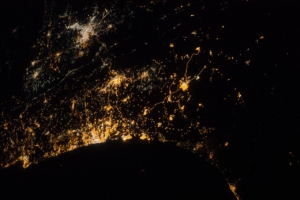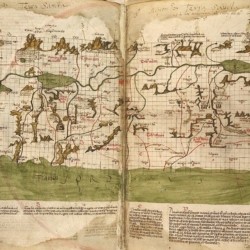| Source (Hebrew) | Translation (English) |
|---|---|
אֱלֹהֵינוּ וֵאלֹהֵי אֲבוֹתֵינו וְאִמוֹתֵינוּ, אֱלֹהֵי פֲּחַד יִצְחָק, אֱלֹהֵי יָעֵל, אֱלֹהֵי רוּחַ שָׁאוּל הַטּוֹבָה, אֱלֹהֵי יִשְׂרָאֵל. |
Our God and the God of our fathers and mothers, The God of the Fear of Isaac, the God of Yael, God of the good spirit of Saul, God of Israel. |
אֲנָא, בְּכֹחַ גְדוּלַת יְמִינֶךָ, לְמַעֲנָם אִם לֹא לְמַעֲנְךָ, גְדוֹר עֲלֵינוּ פְּאוֹת יָם, קֶדֶם, צָפוֹן וָנֶגֶב, וְכַס עוֹלָמֵנוּ בִּכְנַף שְׁכִינַתְךָ. תֵּן חָכְמָה וּבִינָה בְּזִקְנֵנוּ וּבְשָׂרֵינוּ וְהַרְחֵק מֵהֶם כֹּל פֹּעַל עָווֹן הַנְחֵם בְּדֶרֶך הַטּוֹב וְהַיְּשֶׁר, כִּי הִפְקַדְנוּ חֲיֵינוּ בְּיָדָם. תֵּן שוֹפְטֶנוּ בְּכֵס צֶדֶק וְהָאֵר לִיבָּם בְּתוֹרָתֶךָ, לְמַעַן יְהַלְכוּ לְפָנֶיךָ וְיִהְיוּ תְמִימִים. |
Please, with the great force of Your right hand, For them, if not for you, Fence us with the boundaries of the sea, the east, north and south, Cover our skies under the wing of your Divine Presence. Give wisdom and understanding to our elders and our ministers Distance from them any dishonorable deed Lead them in path of the just and the good, for we have put our lives in their hands. Sit our judges on thrones of justice and enlighten their hearts with Your Torah, So that they may walk blamelessly before You. |
אֲנָא, בְּכֹחַ גְדוּלַת יְמִינֶךָ, פְּרוֹס עַל מְגִינֵּי אַרְצֵנוּ אֶת סוּכַּת שְׁלוֹמֶךָ. שַׂא כַּפְךָ עֲלֵיהֶם וְהַצִּילֵם, מִּכֹּל צַר וְאוֹרֵב וּמִּכֹּל קָלִיעַ מְבַקֵּשׁ נַפְשָׁם. תֵּן בָּהֶם עֹז וָלֵב, לְהַבְחִין בֵּין אוֹיֵב וְאוֹהֵב, בֵּין בְּנֵי בְּלִיָּיעָל לְּבֵין בְּנֵי אַבְרָהָם. |
Please, with the great force of Your right hand, Spread over the protectors of our land the canopy of Your peace, Lift Your hand over them, save them from all enemy and ambush, from all bullets that threaten their souls. Given them strength and heart, to distinguish between enemy and lover between the people of wickedness and the people of Abraham. |
אֲנָא, בְּכֹחַ גְדוּלַת יְמִינֶךָ, שְׁמוֹר עַל מְדִינַת יִשְׂרָאֵל, בֵּית חַיֵּינוּ מִקֶּדֶם, לְמַעַן נַגְדִיל שִׁמְךָ בֵּין כֹּל בָּאֵי עוֹלָם, אֲנָא בְּכֹחַ, אֲנָא, בְּלִי כֹּחַ. |
Please, with the great force of Your right hand, Guard the state of Israel, Your daughter whom you have chosen For the sake of exalting Your name among all the inhabitants of the world, Please, with force, Please, without use of force. |
This prayer for the State of Israel was offered by Rabbi Ofer Sabath Beit Halachmi in response to the war initiated by Hamas from Gaza on Shemini Atseret 5784. The English translation was prepared by Rabbi Dr. Rachel Sabath Beit Halachmi.

“תְּפִלָּה לִשְׁלוֹם הַמְּדִינָה | Prayer for the Peace of the State of Israel [during the war begun on Shemini Atseret 5784], by Rabbi Ofer Sabath Beit Halachmi (2023)” is shared through the Open Siddur Project with a Creative Commons Attribution-ShareAlike 4.0 International copyleft license.










Leave a Reply